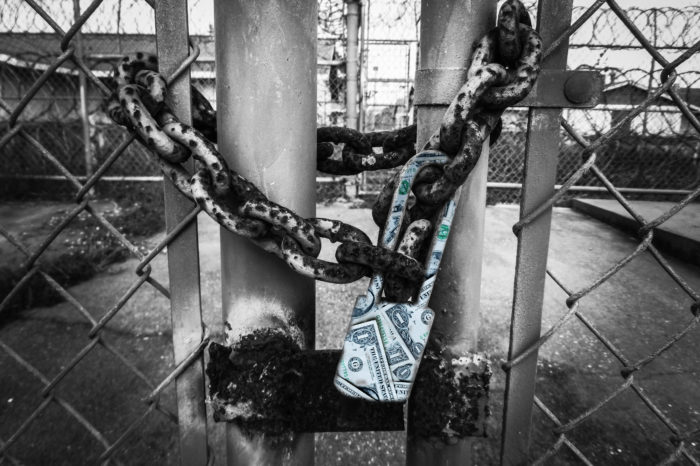$40 or Freedom: Uncounted Cash in the Legal System
Forty dollars isn’t chump change. It’s about three lunches in Boston financial district, or eight pounds of chicken for a family. For a single-person household at the federal poverty line (which represents 10.4 percent of those in Massachusetts), it’s 17 percent of their weekly income.
For almost 6,000 people in 2015, it was the minimum cost of freedom.
In Massachusetts, like most states, there’s a long wait time between arrest and trial. This “in jail awaiting trial” period can be as short as a few days, or as long as a year. Nationally, only 4 percent of defendants are denied bail, meaning that for the vast majority of US court cases there’s a price tag on their temporary release.
Theoretically (and often in practice) those unable to post bail will be stuck in custody, even though they may be found innocent at trial. This costs the taxpayer thousands for every case, and often costs the arrested citizens their livelihoods. What kind of job would allow an employee to disappear for weeks or months without notice? This puts intense pressure on those in custody to post bail so they have a life to come back to after trial.
If bail is posted at a scheduled court appearance, then release is relatively easy. However, if an individual tries to post bail or is released on personal recognizance out of court hours, Massachusetts requires a $40 cash administrative fee. Some justify this charge, saying that clerk magistrates and assistant clerks (those who can administer bail) must come to the jails afterhours for this duty. The state simply refers to it as a “statutory fee”, collected no matter the time of day. Regardless of the state’s reasoning, lack of oversight draws the entire practice into question.
Title VI, Chapter 262 §24a of the Massachusetts General Laws states:
“The maximum fee to be charged by any person authorized to take bail or release on personal recognizance in the case of a person arrested for any misdemeanor or felony shall be $40.”
This enabling legislation makes no reference to time of collection, and in practice this is collected in every instance outside of a detainee’s scheduled court appearance. So how are the fees tracked? Cash doesn’t leave an audit trail, and what records the courts have remain unpublished.
The law doesn’t dictate where the money goes, how it’s incorporated into the employee’s income, or how the government tracks these funds. In fact, employees are trusted to include this outside, cash income on their federal taxes. The trial courts do not release figures on how much employee income this fee accounts for, even though employees keep this fee at the time of collection. As the courts are exempt from public records transparency laws, there’s no way to know how much, when, or how frequently these fees are collected.
In 2015, the Berkshire County Sheriff’s office listed 226 bookings with a bail of only $40, indicating that these individuals were released on personal recognizance. Legally, these individuals were seen not to be a significant flight risk (so no bail), but the state still required $40 for their freedom.
According to a Massachusetts Courts 2016 report1, 12.1 percent of defendants in 2015 were released on bail. Assuming this percentage of pre-trial incarcerations resulted in a $40 bail fee for each year, almost half of a million in cash went unreported by the courts from 2000 to 2015.
State employees’ income is supposed to be reported to the Comptroller’s office, according to Massachusetts General Law Part I, Title II, Ch. 78 §3. As members of the trial court, one would expect any income, cash or otherwise, to at least be reported for tax purposes.
Those arrested tend to come from impoverished communities, so a $40 fee could significantly affect an individual’s ability to post bail. It’s imperative that these charges are tracked, accounted for, and analyzed to determine if the policy is prohibitively regressive. Otherwise, potentially innocent citizens will continue to pay these fees while the government twiddles its thumbs and pretends not to notice.
Kaila Webb is the Wellesley College Freedom Project Intern at the Pioneer Institute. She majors in Environmental Studies, as well as Chinese Language and Culture.
[1] The Massachusetts Court System, “Initial Analysis of MassCourt District & Boston Municipal Court Pre-Trial Release Events” (The Massachusetts Court System, April 5, 2016).



